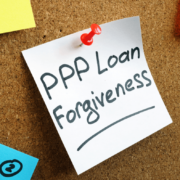How Do You Know When Your Business Is No Longer a Startup?
- Learn how the Small Business Administration defines a startup.
- Find out how the length of time a business has existed affects its “startup” status.
- Discover how a business’s approach to an industry helps to define a “startup.”
- Learn how to finance a startup.
- Discover the milestones that mean your business is no longer a startup.
There’s a specific sensibility and respect attached to businesses referred to as startups. Owners enjoy the feeling of risk-taking and future-facing enterprise. But the actual definition of what a startup is can be murky. Even if your business meets the definition in the eyes of the investing community, at what point do you graduate from startup to established business? Fiducial has some answers for you.
Startups have a pretty loose definition. People generally acknowledge them as a subset of small businesses (a category established by the U.S. Small Business Administration for the purpose of qualifying for federal contracts). They earn their name based on either how long they have been in business or in the way that they have approached the industry that they are in. Let’s take a closer look at each.

How long have you been in business?
There are plenty of entrepreneurs who proudly refer to themselves as startups. Most of these businesses are simply new and have only been operating for a couple of years. Though this belies the notion that a startup is a disruptor that is doing something new and risky. Any new business owner can tell you that whether they’re selling a novel service or an iconic product, they’re taking a real chance by going it alone.
This idea is supported by the Congressional Research Service’s findings of the risk involved in starting a new business. A recent report indicated that “business startups create many new jobs, but have a more limited effect on net job creation over time because fewer than half of all startups remain in business after five years.”
Considering a new venture as a startup is a legitimate position to take. However, it begs the question of at what point they consider themselves well-established enough to no longer be called a new business, a startup, or anything else indicating their sense of courage combined with concern.
How do you approach an industry?
The more traditional characteristics of the term “startup” refer to the way that a business approaches its industry. They are either selling an existing product or service in an entirely new way or introducing a brand new service or product that will be a game-changer for consumers, as well as for their competition. These businesses are taking a different type of chance. They are betting that their product will take off and offer rich rewards.
Businesses that fall into this category are often tech companies but not always. According to Eric Ries, the creator of the Lean Startup methodology, “A startup is a human institution designed to create a new product or service under conditions of extreme uncertainty. To open up a new business that is an exact clone of an existing business, all the way down to the business model, pricing, target customer, and specific product may, under many circumstances, be an attractive economic investment. But it is not a startup, because its success depends only on decent execution—so much so that this success can be modeled with high accuracy.”
Does the term “startup” really matter?
Does your use of the word “startup” refer to your business’ tenure or its goal of turning an industry on its head? In both cases, the term indicates that it has a lot of runways ahead.
How to finance a startup
One of the most essential pieces of a new business’ survival is how and where it will get its financing and calling yourself a startup can impact your options. Traditional lenders like credit unions or banks are notoriously risk-averse.
Unfortunately, businesses with two years or less of operational history are unlikely to qualify for funding. If this describes your business, you are more likely to find yourself eligible for a personal loan based on your credit score. Perhaps a loan or microloan from an online lender based on documented revenues would work too.
By contrast, call yourself a startup and you’re likely to draw the attention of venture capitalists, private investors, angel funding, or even crowdfunding from people who are eager to take a chance on a promising new idea. These alternative sources of funding are willing to take a risk. They are much more interested in your vision and your market research than in your credit history or actual sales.
Are you well established enough?
Whether you’ve called yourself a startup because of the newness of your business or of your product, at some point you need to acknowledge that the name no longer fits. Here are a couple of milestones that indicate that you’ve bypassed that stage of your company’s history and have achieved a significant level of success:
- If your business has made it past the one-year anniversary of its opening, then you have accomplished what the Small Business Association says that many businesses do not. According to the agency, approximately one in five don’t survive that long.
- If you’ve reached the point where you’re making a profit, then you’ve surpassed most non-employer firms.
- If you’re no longer running the business yourself and you’ve started hiring employees, then you’re doing better than 80% of American small businesses.
Need some advice on starting a new business? Call Fiducial at 1-866-FIDUCIAL or make an appointment at one of our office locations to discuss your situation. Ready to book an appointment now? Click here.
Know someone who might need our services? We love referrals! For more small business COVID-19 resources, visit Fiducial’s Coronavirus Update Center to find information on SBA loans, tax updates, the Paycheck Protection Program, paid sick and family leave.









